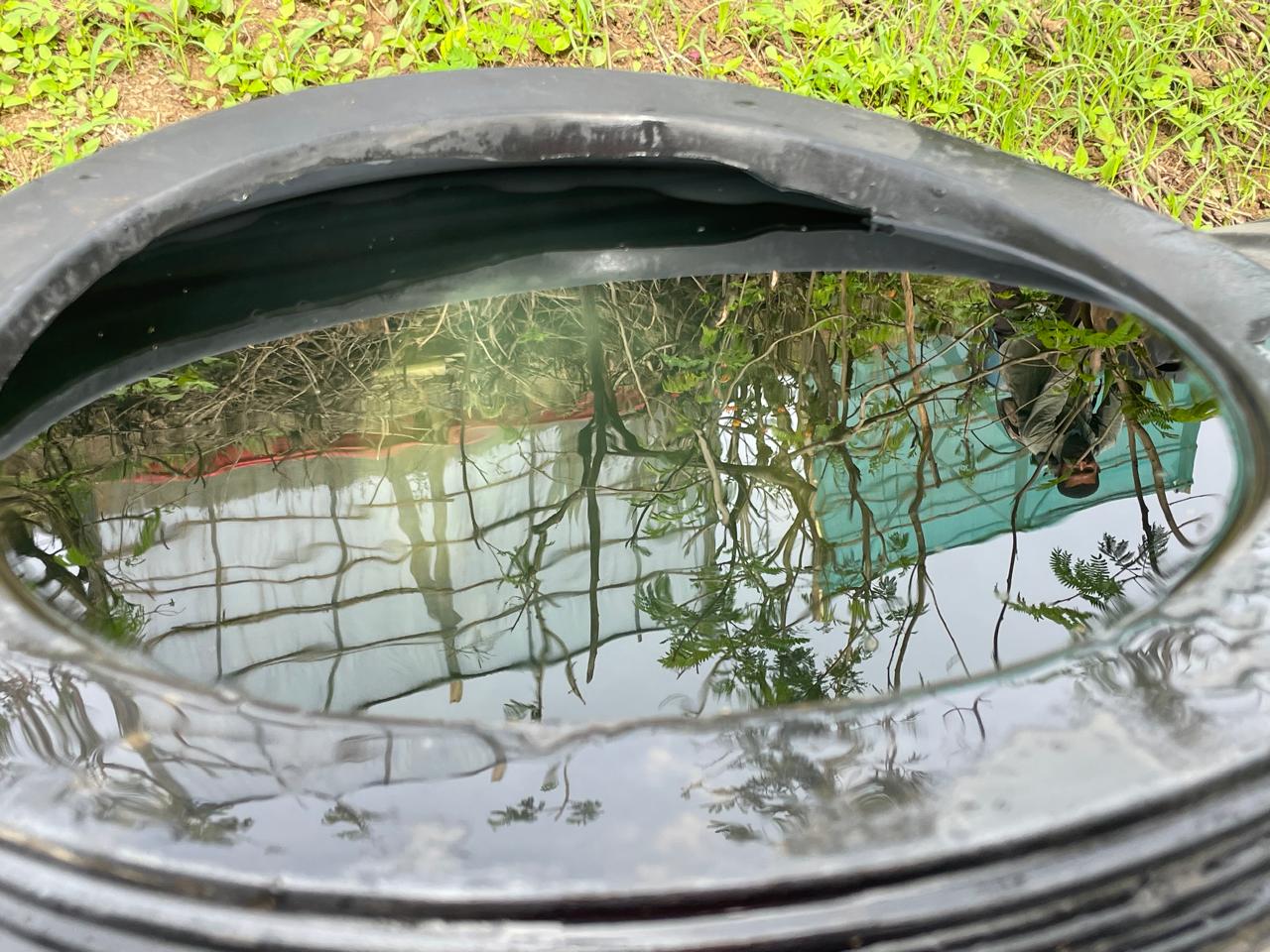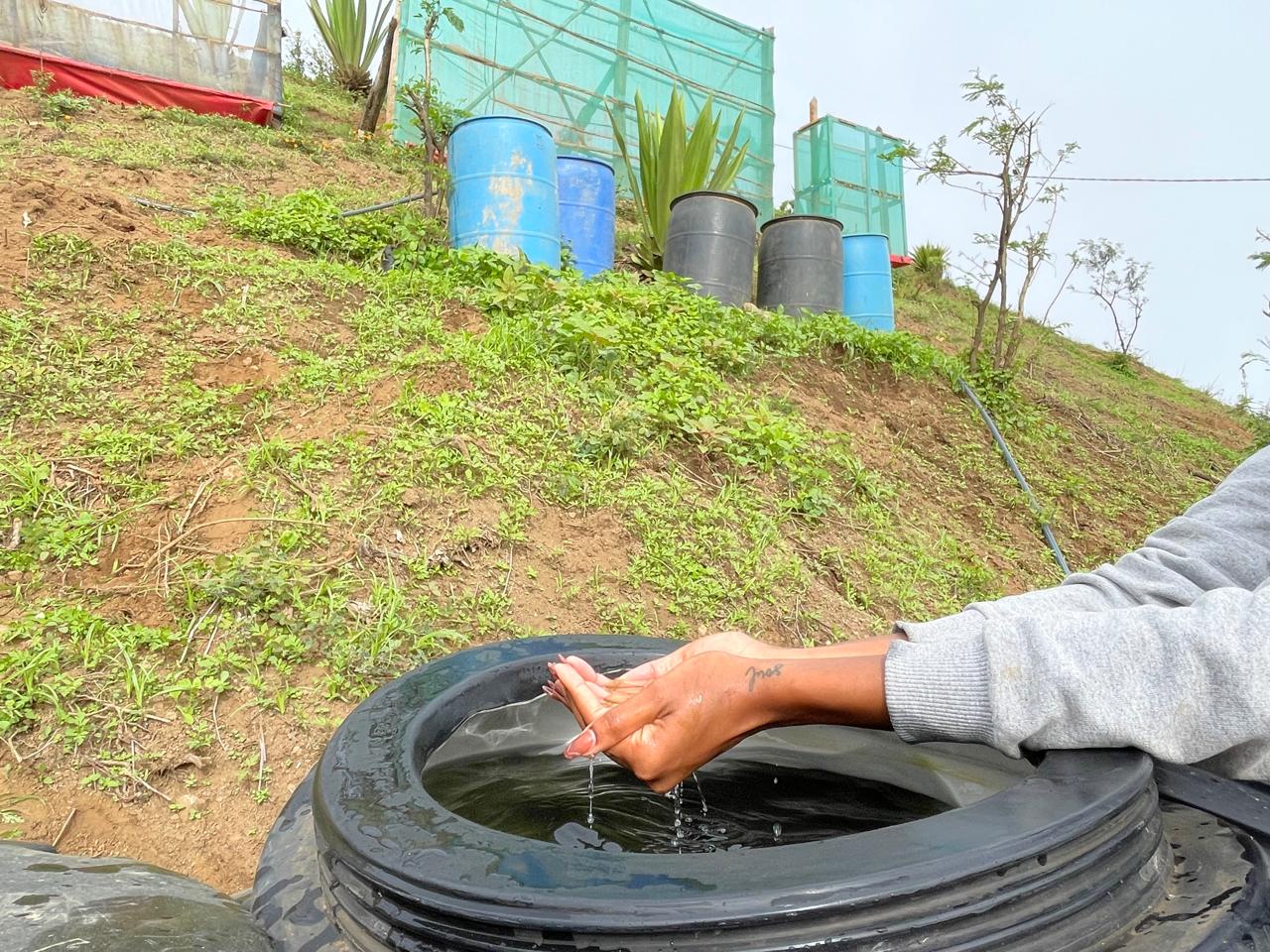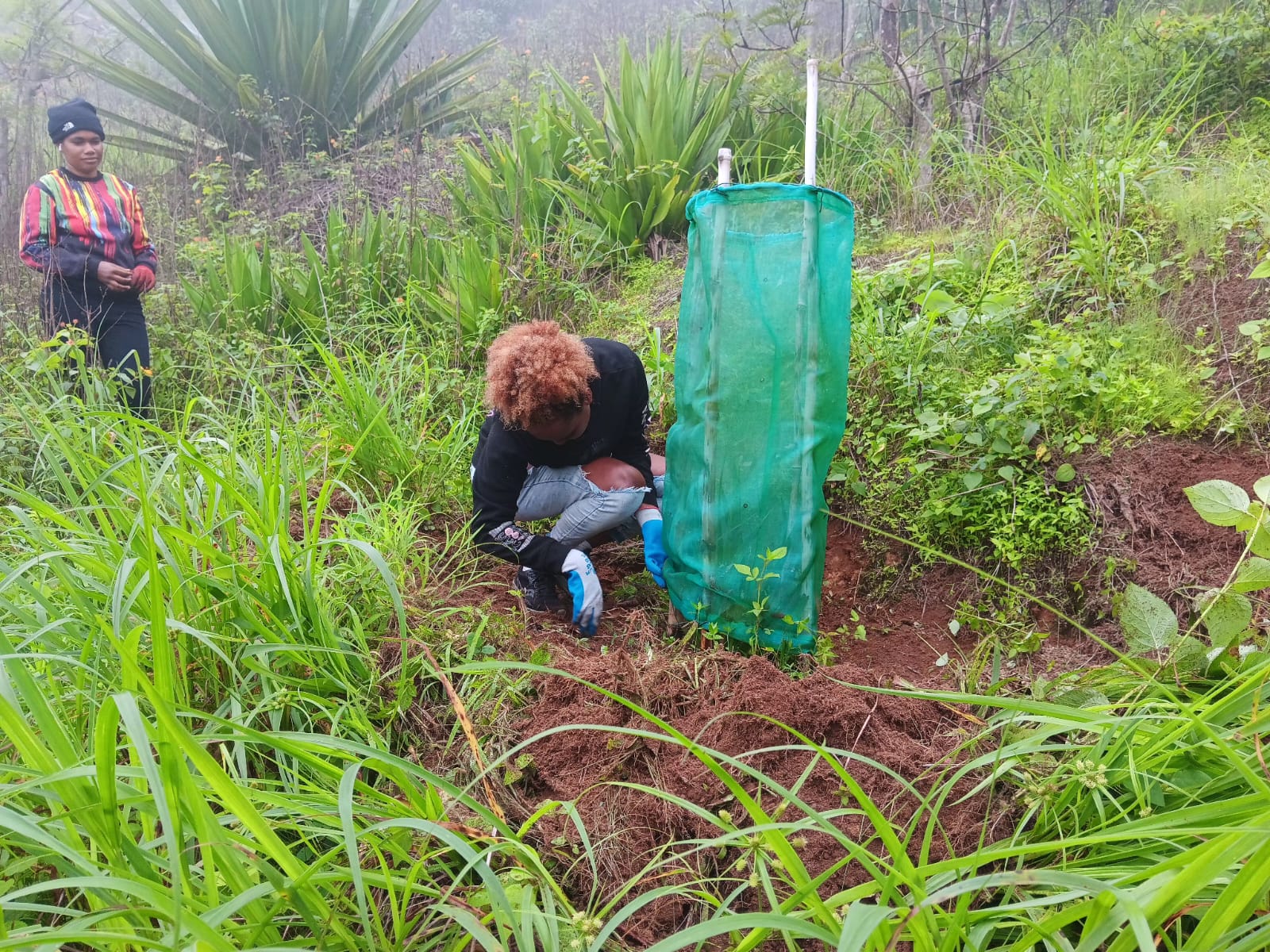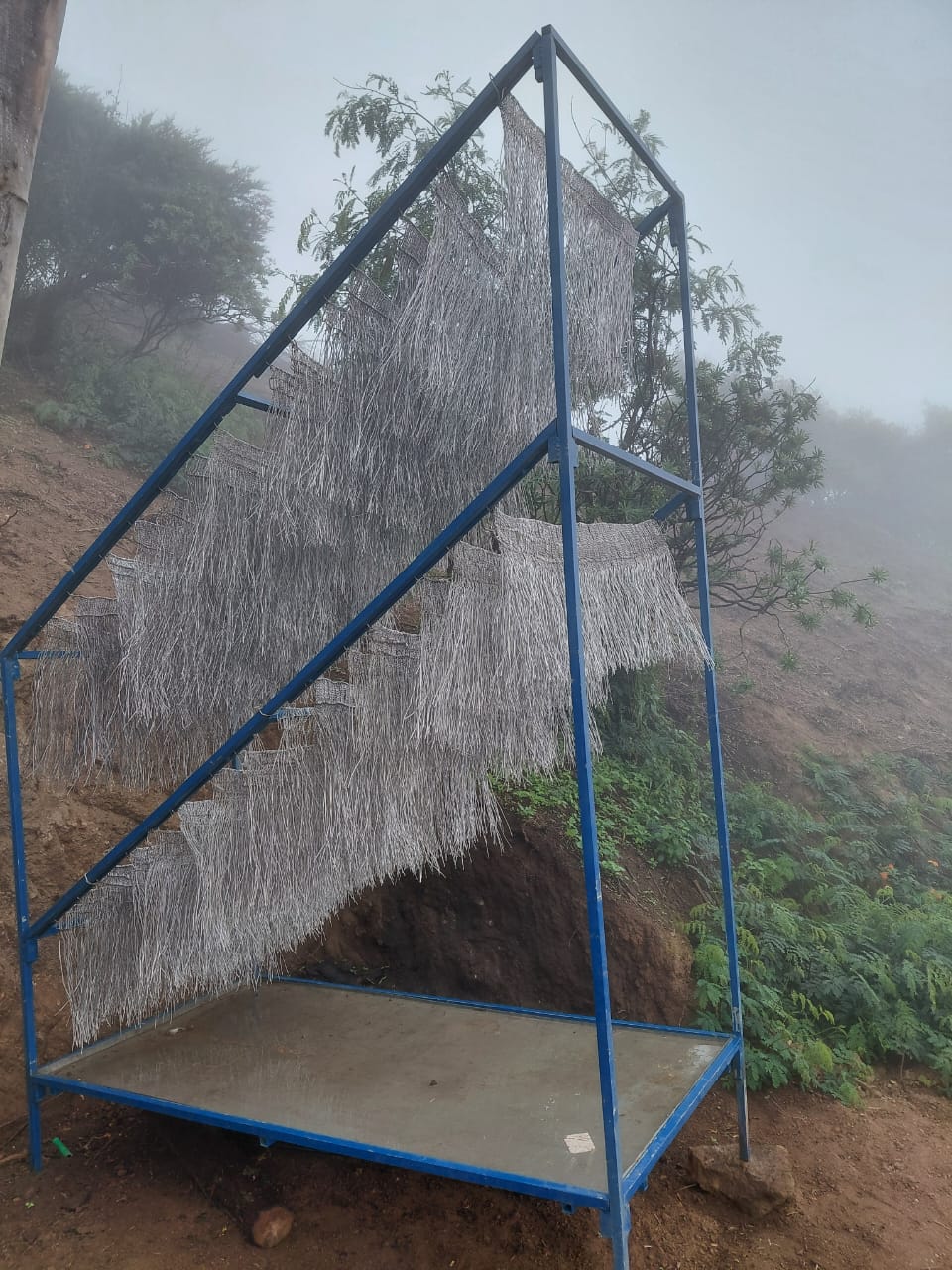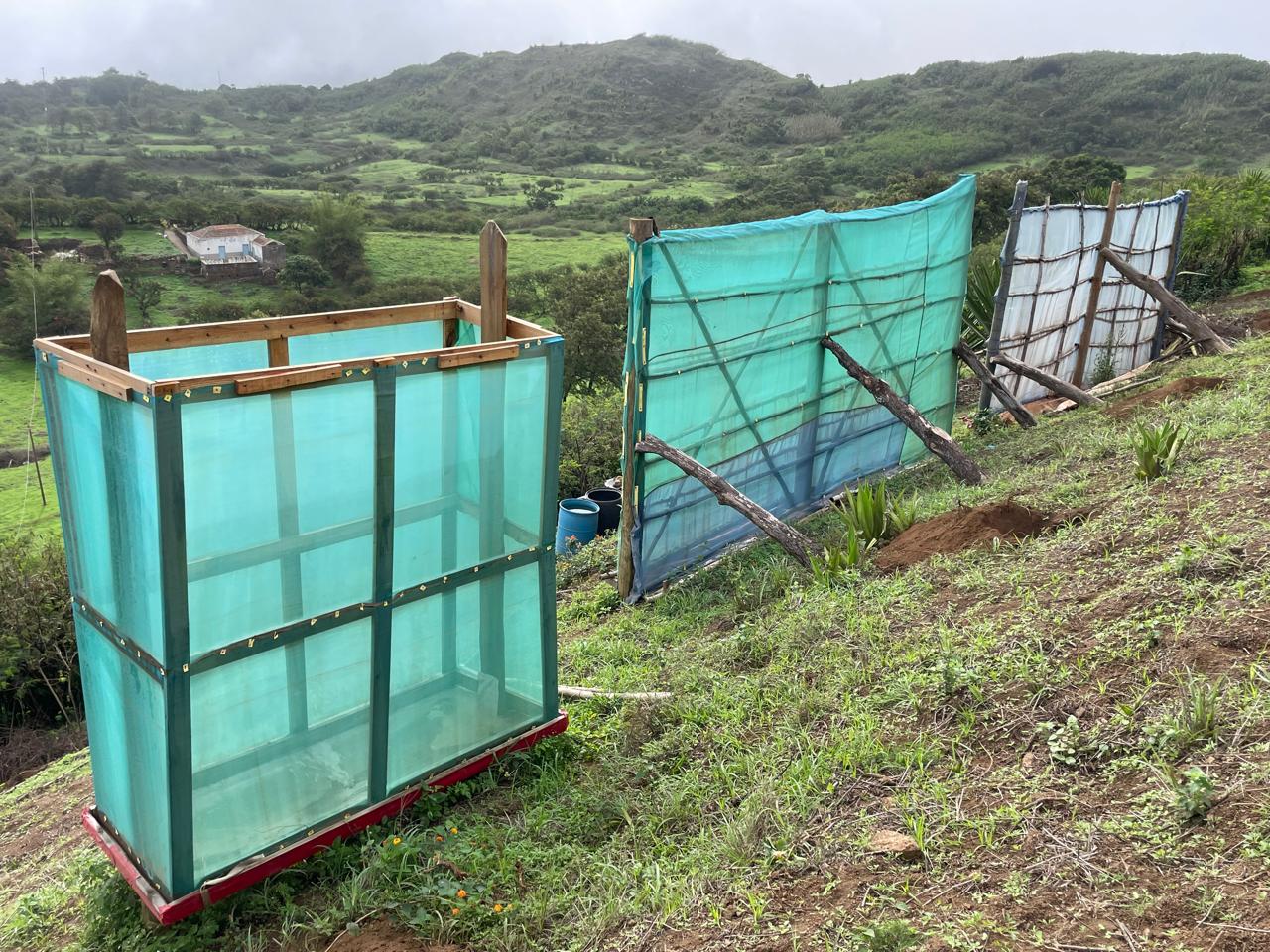Implementing Nature-Based Solutions to Combat Hydroclimatic Risks: Cloud-Moisture Harvesting for Ecological Restoration
Context: Brava is highly vulnerable to hydroclimatic risks such as prolonged droughts, reduced freshwater availability, and increasing climate variability. These pressures exacerbate land degradation, hinder ecological restoration, and affect local livelihoods dependent on agriculture and livestock.
Nature-Based Solutions (NbS) offer innovative and sustainable approaches to address these challenges. One of the most promising methods in cloud-affected regions like Brava is cloud-moisture harvesting, which captures water droplets directly from passing clouds and fog, providing a renewable water source for ecological restoration, reforestation, and community needs.
This project pioneers the integration of fog and cloud-water harvesting technologies into broader ecosystem management strategies, creating a model for climate resilience and sustainable development.
Objectives
- Install and operate cloud-moisture harvesting systems in strategic upland areas to provide reliable water resources.
- Utilize harvested water for ecological restoration, including reforestation, enrichment planting, and maintenance of endemic and endangered plant species.
- Support sustainable grazing and livestock management by ensuring water availability for cattle, reducing pressure on fragile ecosystems.
- Develop community-based management systems for water distribution and use, ensuring equitable access.
- Promote research, monitoring, and knowledge exchange on cloud-water harvesting as a scalable nature-based solution to hydroclimatic risks.
Expected Impact
- Increased water availability for ecological restoration and community use.
- Improved survival rates of reforested and restored areas.
- Stabilization of soils, reduction of erosion, and improved watershed functions.
- Reduced pressure from free grazing by securing water for enclosed systems.
- Strengthening of local resilience against drought and climate variability.
- Contribution to national and international knowledge on fog and cloud-water harvesting.
Results
- Cloud-moisture harvesting systems installed and operational.
- Reliable initial water supply generated for reforestation (plant production), restoration (irrigation in times of extreme hydric stress), and cattle needs.
- Native and endemic plant populations stabilized through improved restoration success.
- Community-led water management frameworks developed.
- Increased visibility of Brava as a regional model for NbS and climate resilience.
Current Support
- SMILO
- Ministry of Agriculture and the Environment
- Embassy of Germany in Lisbon

